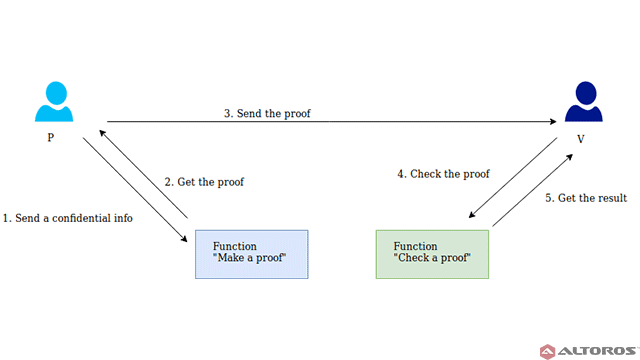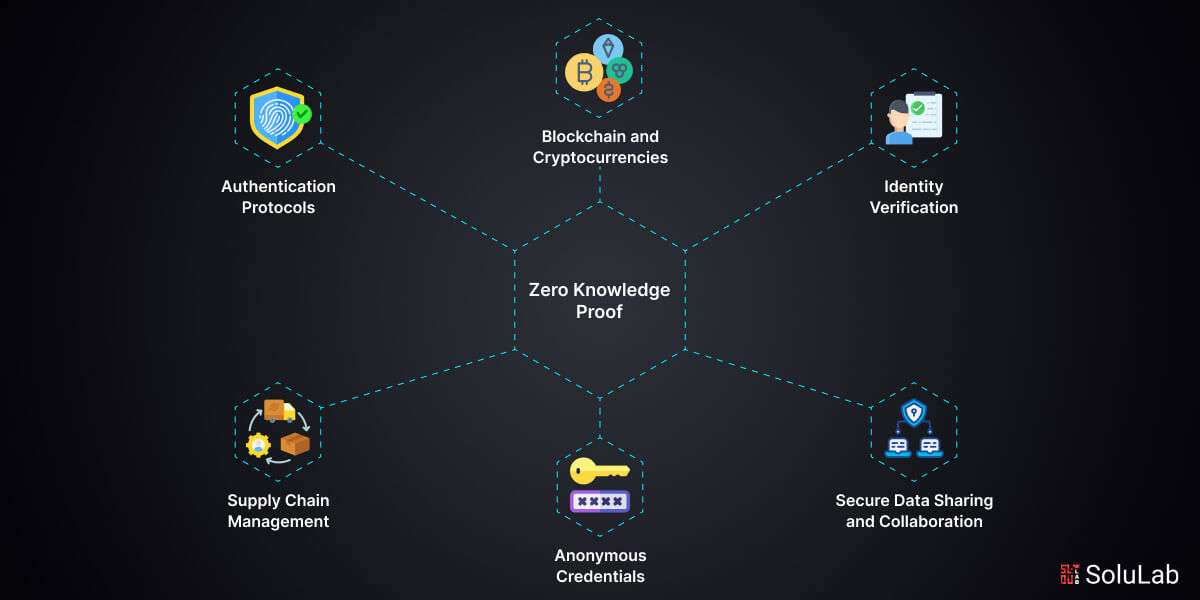- Published on
Unveiling the Power of Zero-Knowledge Proofs in Blockchain Privacy
- Authors

- Name
- Adil ABBADI
Introduction
As blockchain technology continues to revolutionize the way we conduct transactions and share data, concerns surrounding privacy and security have become increasingly pressing. One innovative solution emerging as a beacon of hope is Zero-Knowledge Proofs (ZKPs), a cryptographic technique that enables users to verify the validity of information without revealing the underlying data. In this article, we'll delve into the world of ZKPs, examining their applications, benefits, and significance in bolstering blockchain privacy.

- What are Zero-Knowledge Proofs?
- Applications of Zero-Knowledge Proofs in Blockchain
- Benefits of Zero-Knowledge Proofs in Blockchain
- Challenges and Limitations
- Conclusion
- Final Call-to-Action
What are Zero-Knowledge Proofs?
Zero-Knowledge Proofs are a type of cryptographic protocol that allows one party to prove to another that a statement is true, without revealing any information about the statement itself. This concept was first introduced in the 1980s by cryptographers Shafi Goldwasser, Silvio Micali, and Charles Rackoff. The 'zero-knowledge' aspect means that the prover can convince the verifier of the statement's validity without leaking any sensitive information.
# Example of a simple ZKP protocol in Python
def prove_statement(prover, verifier, statement):
# Prover generates a commitment to the statement
commitment = commit(statement)
# Verifier challenges the prover with a random value
challenge = verifier.send_random_value()
# Prover responds with a proof
proof = prover.respond(commitment, challenge)
# Verifier verifies the proof
if verifier.verify(proof):
print("Statement is true!")
else:
print("Statement is false!")
Applications of Zero-Knowledge Proofs in Blockchain
The integration of ZKPs in blockchain networks offers a plethora of benefits, including:
1. Confidential Transactions
ZKPs enable users to conceal their transaction amounts, recipients, and other sensitive information, while still allowing the verification of transaction validity. This ensures that users can conduct private transactions without sacrificing the security and transparency of the blockchain.

2. Identity Verification
ZKPs can be used to prove identity without revealing personal data, eliminating the risk of identity theft and data leaks. This is particularly useful in decentralized finance (DeFi) applications, where users need to verify their identity to access services.
// Example of a ZKP-based identity verification contract in Solidity
contract IdentityVerifier {
function verifyIdentity(address user, bytes32 identityCommitment) public {
// Verify the identity commitment using a ZKP protocol
if (verifyZKP(user, identityCommitment)) {
// Grant access to the user
grantAccess(user);
}
}
}
3. Smart Contract Encryption
ZKPs can be employed to encrypt smart contract logic, ensuring that only authorized parties can access and execute the contract. This adds an additional layer of security and privacy to smart contract interactions.

Benefits of Zero-Knowledge Proofs in Blockchain
The adoption of ZKPs in blockchain technology offers several advantages, including:
1. Enhanced Privacy
ZKPs enable users to maintain control over their personal data, ensuring that sensitive information remains confidential and protected from unauthorized access.
2. Improved Security
By concealing sensitive information, ZKPs reduce the risk of data breaches and cyber attacks, providing a more secure environment for blockchain transactions.
3. Increased Scalability
The use of ZKPs can lead to improved scalability, as verifiers only need to verify the proof without executing the underlying logic, reducing computational overhead.
Challenges and Limitations
While ZKPs hold immense promise for blockchain privacy, there are several challenges and limitations to consider:
1. Computational Complexity
ZKP protocols can be computationally expensive, leading to increased transaction times and energy consumption.
2. Implementation Complexity
Implementing ZKPs requires advanced cryptographic expertise, which can be a barrier to adoption for many developers.
3. Interoperability
Ensuring interoperability between different ZKP protocols and blockchain networks remains a significant challenge.
Conclusion
Zero-Knowledge Proofs have the potential to revolutionize the way we approach privacy on blockchain networks. By enabling secure, confidential, and verifiable transactions, ZKPs can unlock new possibilities for decentralized applications and services. As the blockchain ecosystem continues to evolve, the integration of ZKPs will play a vital role in shaping the future of secure and private transactions.
Final Call-to-Action
As we venture further into the world of blockchain privacy, it's essential for developers, researchers, and innovators to collaborate and push the boundaries of ZKP technology. By working together, we can create a more secure, private, and scalable blockchain ecosystem for all.

